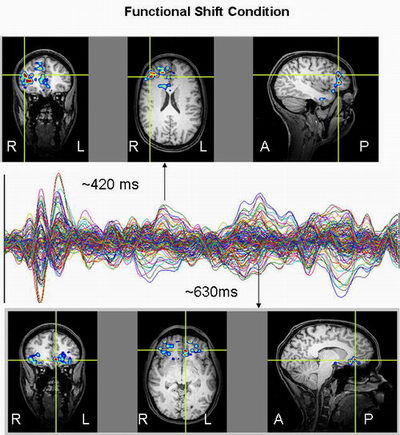There have been plenty of studies that look at how Shakespeare effects your brain. Here’s another one. They try to determine if the brain is “hardwired” to appreciate the rhyme and rhythm of poetry, such as (but not only) Shakespeare.

I like the test. They read a specific kind of Welsh poetry to people who did not know the “rules” of that poetry (I suppose it would be a little something like trying to read Haiku to someone without explaining it?) If your poem follows the rules, even when the audience doesn’t know the rules, they rate it more highly than if you break them.
I can totally buy that. It’s not really a big stretch to think of the brain as a giant pattern matching machine, and what is rhythm but “this line follows the same pattern that the last line did?” You can’t really explain it, you just kind of feel it. I’m reminded of Dead Poet’s Society where Robin Williams’ students march in a circle, walking in step. They spontaneously begin clapping in rhythm as well. But Williams never told them to do that. It just felt more natural to do so. It takes more effort to go against the rhythm than to just go with it.
Can we make the leap that iambic pentameter mimics the beating of the human heart (thump THUMP, thump THUMP)? I’m not sure I’m quite willing to go that far. For starters, that would imply that poetry that is not iambic would feel worse, and that’s not true. I love me some Dr. Seuss and his meter is entirely different.
